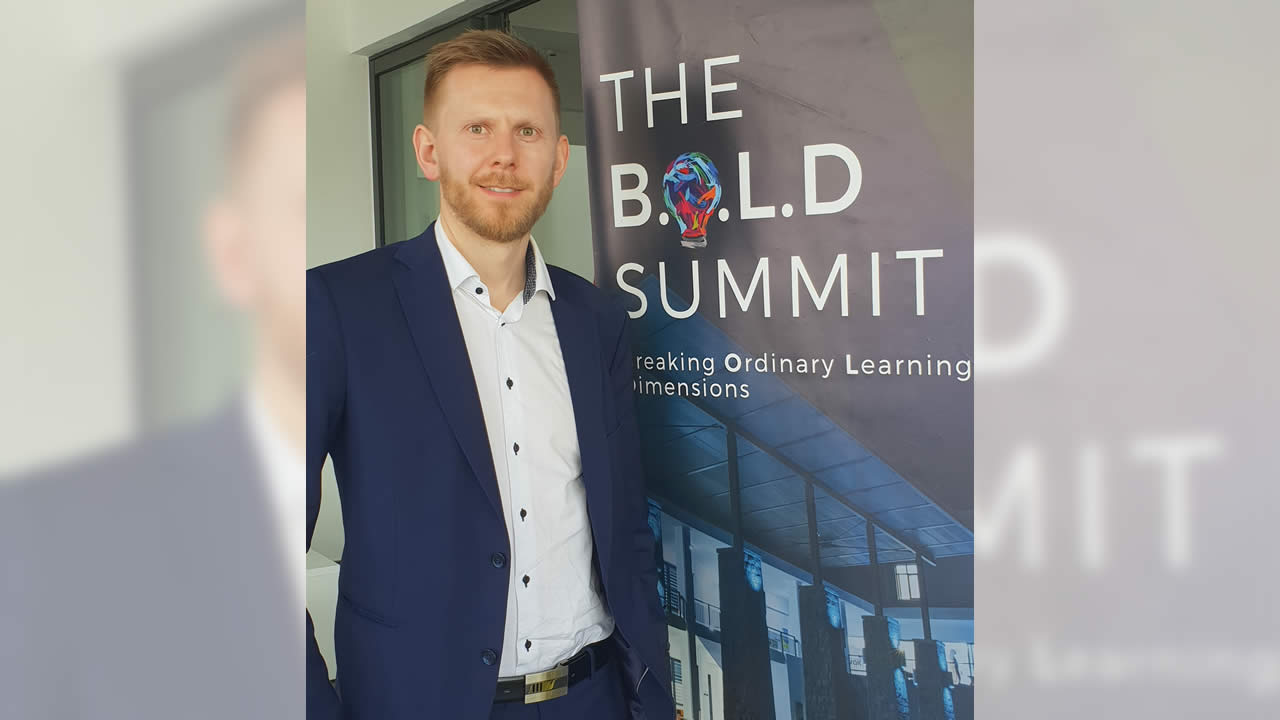
Principal at Startup High school, a Finland based online platform that provides virtual entrepreneurial studies for all high school students, Pekka Peura is an advocate for future learning. Known as ‘the most famous teacher in Finland’ for his innovation and leadership development work receiving a Mensa Award, his influence has in fact encouraged fellow educators to join him in the long-term development goal to shape the future of education. Present in Mauritius for the B.O.L.D (Breaking Ordinary Learning Dimensions) summit organised by the African Leadership University, Pekka Peura shares with us his vision for the future of education.
As an advocate for future learning, can you tell us what is it all about?
Future learning is where children are happier and more excited about learning in schools and that also involves other people. I also would say that the future of learning in schools would be something more natural for human beings. We have been talking about 21st century skills, so it is also about the skills we should to learn and have in the future. The world is now very different and people are more connected, so you need the right skills about how to communicate.
Students need to be strong enough in order to handle the stress for the uncertain future and for this, they need self-evaluation skills."
Why is future learning significant for our children, who will become the future leaders?
In the future, people would be more connected and the world would become smaller. We would also have more issues, as we are getting closer to each other. It is thus very important for children to have a flexible mind so that they are not stuck with the same mindset. Changes are happening and one needs to adjust. For example, in Finland, we see that like never before, teenagers are much more stressed because they do not know what they should learn as the future is uncertain. What future teaching and learning should be is the nurturing of creative students. Students need to be strong enough in order to handle the stress for the uncertain future and for this, they need self-evaluation skills and self-reflection skills, which will help them to know who they are, what they can do and develop the feeling that they cannot learn everything but they can learn what they want to. We should bear in mind that stress starts when you start comparing your success to someone else’s. This is not natural but it is natural to be different.
How to implement future learning in Mauritius and what changes can this bring along?
In Finland, children take only one standardized test at the end of Grade 12. However, parents want their children to have standardized tests and teachers give tests to students by setting up their own papers. So they are inventing different tests, however, we do not compare performances in schools as all tests are different. Mauritius can try to see if it can be implemented here. All schools are making the same mistake by not teaching what students really want to learn. In fact, the older the education culture, the harder it is to change it. People need role models and I believe that children also need this, and government should work towards this.
Many education systems focus too much on academic achievement where important skill developments are put aside. How does this impact on our future generations’?
We are already seeing the results but we need to measure the data instead. For example, according to research done, around 35% of students aged 14-15 years who were asked if the enjoy or like to be in school responded by the negative. The impact is thus already there. We can either continue with this or try to do better. Also, we know we need to have a degree to have a certain kind of job. For example, to become a teacher in Finland, you need a Master’s degree but because of the coming of robotics and technology, I believe in the near future, we will discover that one can be a really good worker without having to have certain certificates. We will start to have more and more students who have been bold enough to not go through the normal path. We need to have these types of heroes who do what they want and still make a good living and these models I believe will have an impact on the future generations’ mindset. The present role models have gone through the academic path but I believe this will change.
The education system, I believe, is on a trial and error mode and we are learning by trying."
Digitization and technology have shaken up the teaching and learning experience. Would you say that the effects are more negative than positive?
I believe that there are more positive effects. Technological devices have rendered people a lot smarter. We also have some good really good games that are definitely enabling teaching and learning. However, we now see many negative impacts because we do not know how to handle this new device and know-how and it provides too much distraction from real life. We need to first identify all issues related to these and then find out the proper solutions, how to use them in a more effective way so that we are the masters instead of the other way round. In addition, we do not know yet if learning on a tablet and technological games is actually helping students. The education system, I believe, is on a trial and error mode and we are learning by trying. I am, however, sure that the technology will positively change the whole teaching and learning experience in future.
Teachers have a major role to play in education. What new skills do teachers need to acquire or develop in order to meet with the needs of tomorrow's education system?
Teachers always want the best for their students but if they do not know how to deliver the best, then this causes lots of stress. This is why we need to empower our teachers. It is also not an easy task as changes are always stressful, especially with the changes taking place in the teaching and learning world, the teacher will have to adapt. This is hard especially if they do not have support. Teachers should, however, not forget that they are role models and that they should also show that they are also learning but it is not easy if they keep an authoritative stance. They thus need to have a very flexible mindset in order to handle the changes in the teacher-student dynamics.
Finland's education system is known as being the best in the world. What should a small country like Mauritius learn and adopt from this system?
There are lots of things that are actually working. For me, free education is a key in a good and equal education system for everyone, irrespective of financial situation. This means everything should be free: Meals, school fees, books, among others, and thus the same opportunities for everyone.
More than 90% of people who start their career as a teacher will retire as a teacher in Finland. Only 10% become principals or rectors. In the USA, after the first five years, half of the teachers will change their profession. This is because in Finland, we have the support from the system by giving us full autonomy. This highly motivates teachers, I believe. Society and parents also trust what we are doing and the culture values teachers. This is something other education systems should consider.
 J'aime
J'aime














